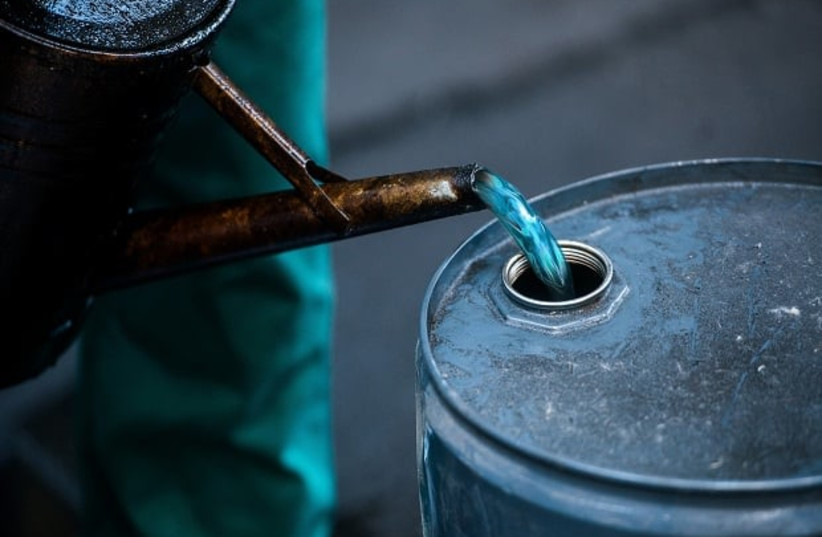Abu Shadi runs a small repair shop fixing kerosene stoves in the Husn Palestinian refugee camp about 50 miles north of the Jordanian capital, but until recently, there was little business to speak of due to the prohibitive cost of kerosene. On Tuesday, following King Abdullah II's directive to suspend the kerosene tax, Abu Shadi’s small shop witnessed a brisk uptick in locals wanting to fix their kerosene stoves.
For more stories from The Media Line go to themedialine.org
Residents of the Husn camp told The Media Line that they had been using wood and any available combustible items to stay warm rather than dish out what amounted to $1.20 per liter for kerosene. The decision to suspend the tax, along with the government lowering the price of kerosene on December 31, brings the price of a liter of kerosene down to the equivalent of 87 cents, a 27% reduction.
“Now people are coming to my store and having their stoves fixed because the price of kerosene is more reasonable, even though some still have a problem making that work,” Abu Shadi told The Media Line by phone.
Prime Minister Bisher Al-Khasawneh decided on Tuesday to suspend the tax on heating fuel for the entire winter, days after the Jordanian monarch called for a winter tax halt to help poor families who depend on kerosene to heat their homes.
Have gas sales remained stable?
Gas stations reported a marked increase in sales following the government announcement, which came less than a month after a truckers’ strike in December that called for lowering all fuel costs. At the regular monthly fuel price review on December 31, the price of diesel, the primary fuel used by truckers, was reduced to 0.820 Jordanian dinars ($1.16) per liter from the high of 0.895 Jordanian dinars ($1.26) per liter triggered the 20-day truckers’ strike. The truckers achieved their goal of reducing fuel prices, but the strike itself spiraled into chaos, culminating in multiple shootouts between police officers and Islamic extremists and resulting in the deaths of four Jordanian police officers.

The regular price review on December 31 reduced the cost of kerosene to 0.785 dinars ($1.10) per liter and the tax suspension brought it down to 0.620 dinars (87 cents) per liter.
Jawad Abbasi, founder of the Arab Advisors Group, told The Media Line that the lowering of fuel prices shows that the truckers’ strike brought results. He predicts fuel prices will continue to go down.
“The government also began the year 2023 with a decision to widen the competition of sources of fuel to fuel companies and in return, they waved the annual license fee to the three companies that sell fuel in Jordan,” he said. According to Abbasi, the decision to increase competition and waive licensing fees will further reduce fuel prices by between 5% and 15%. Abbasi notes that Jordan once could have brought down airline fuel costs by 20% if they had allowed similar open competition.
According to official Jordanian statistics, 76 million liters of kerosene were sold in 2021. Assuming similar sales in 2023, the suspension of the kerosene tax will cost the Jordanian government 12.5 million dinars ($17.6 million) in lost tax revenue. While significant, this lost revenue pales in comparison to the 150 million dinars ($211 million) that Jordan will continue to bring in through its diesel tax on the 950 million liters of diesel sold annually.
Abu Shadi will bring in more money this year than he did last year, but he would have liked the price of kerosene to go down even more. He told The Media Line that in past winters when the price of a liter of kerosene was 0.40 dinars (56 cents), he used to make a daily profit of about 14 dinars ($20). He is grateful that the price of kerosene has been brought down but worries that the equivalent of 87 cents per liter is still a prohibitively high cost for some.
